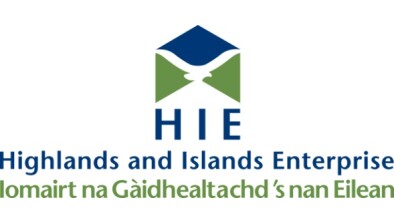Highland Council outlines plan for 2,500 new affordable homes by 2022

The Highland Council has agreed a plan which will deliver 500 new affordable homes across the region every year for the next five years.
The proposals were outlined in its five-year council programme which set out a number of strategic goals across five themes: a place to live, a place to learn, a place to thrive, a welcoming place and a redesigned council.
The plan aims to attract more people to make the Highlands their home and encourage younger residents to stay there.
Its key priorities to help achieve this include:
The council will also seek new, faster, and better ways to ensure superfast broadband and digital services are provided to all Highland communities; continue the refurbishment of primary and secondary schools and work with government, HITRANS and others to deliver improvements to key transport links and make the case for additional resources to deliver a much needed infrastructure investment programme throughout the region.
Council leader Margaret Davidson said: “Our Programme builds on the foundations of localism that we have been establishing over recent months. We are committed to devolving more power to areas to make democracy work better for communities.
“This is an exciting and energetic region full of entrepreneurs and we need to build on the undoubted strengths in our communities. Workforce planning is crucial for our future and we must plan to grow our own skilled workforce to meet the needs of tomorrow, with early years provision, support for schools, modern apprenticeships, and supporting and growing job creation and opportunities across the region.
“In tandem with growing jobs and opportunities we need to ensure we have places for people to live and thrive. We have an acute housing need and we will be ambitious with our targets for new homes and encouraging the private sector to join with us in our ambition.”
She added: “There are many risks, mostly fiscal, to the successful outcome of our Programme, but never better opportunities. This programme must have cross-chamber support and the next step is to discuss the detail in a seminar with members and thereafter to engage with our communities and partners in order to deliver the best we can for Highland.”
The news comes as the council agreed its strategic approach to “an uncertain and challenging financial outlook” over the next five years.
Back in June, the council was presented with a financial outlook which identified a potential budget gap of around £160m to fund existing core services, (between £129m and £186m) over the period 2018-2023, based on a number of assumptions, particularly around the anticipated reducing level of Scottish Government Grant funding.
In light of this financial forecast, the council said it “can no longer continue to provide the same services, at the same level, in the same way as before”.
Chair of corporate resources, Cllr Alister Mackinnon, said: “We are committed to becoming as efficient an organisation as possible and have already made substantial savings over the past few years, but such a huge gap cannot be addressed without a significant impact on our residents and service users.
“We aim to work on five key areas to find ways of meeting the gap. We will continue to look for efficiencies, aiming to improve processes and procedures to get the same outputs and outcomes at a reduced cost. Proposals to restructure the council and further reduce management costs is just one example of this.
“However, efficiency on its own will not be enough. We have already agreed we will focus on commercialisation of the council, with the aim of taking a business-like approach and generating income to support core council services.
“We will also need to raise income by introducing new, or increasing existing charges for some services the council provides. I know this is painful and it will not be popular, as we are all used to getting a certain level of service, but we need to recognise that some people can afford to pay more for services which are not statutory or essential. We will explore all options.
“We have already started a process of fundamentally reviewing how the council provides its services to the public through Redesign over the past year £0.5m of savings will come from redesign this year with more in future years.
“We must also look at removing or reducing some services, which, although we want to deliver and we deliver successfully, local authorities do not have an obligation to provide. We need to question can we afford to continue to do this.”
Cllr Mackinnon added: “We have to deliver a balanced budget and this is without a doubt going to be the most difficult financial period that local government has ever experienced.”

















